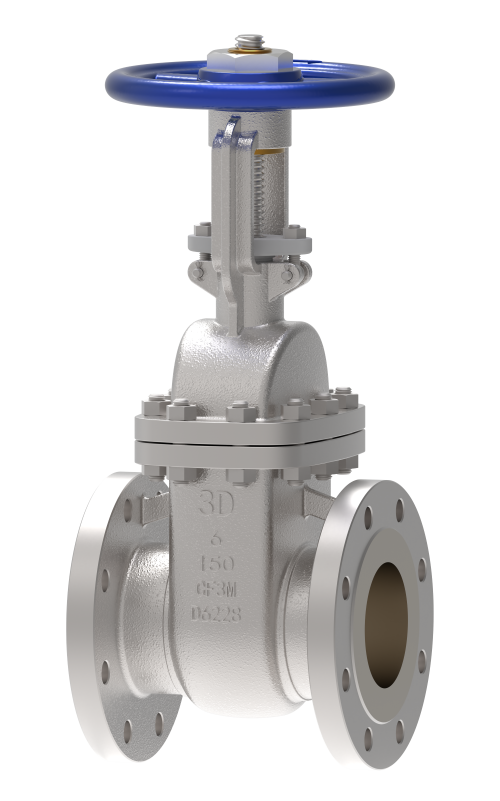


Introduction:
Stainless steel ANSI manual gate valves are pivotal components in fluid handling systems, designed to regulate the flow of fluids in various industrial applications. These valves adhere to American National Standards Institute (ANSI) standards and are constructed from high-quality stainless steel, offering exceptional corrosion resistance and durability.
Features:
1. Stainless Steel Construction: Stainless steel ANSI manual gate valves are fabricated using premium-grade stainless steel materials, providing superior corrosion resistance, durability, and longevity.
2. Bolted Bonnet: These valves feature a bolted bonnet design, facilitating easy access to internal components for maintenance and repair purposes.
3. Rising Stem Design: Gate valves typically incorporate a rising stem design, where the stem moves up and down as the valve is operated, providing visual indication of the valve's position.
4. Non-Rising Stem Option: Some valves offer a non-rising stem option, suitable for applications with space constraints or where underground installation is necessary.
5. Flanged Ends: Stainless steel ANSI gate valves come equipped with flanged ends, allowing for straightforward installation and connection to piping systems using bolted flange connections.
6. Handwheel Operation: These valves are manually operated via a handwheel mechanism, providing precise control over the valve's opening and closing actions.
7. Pressure Rating: ANSI gate valves are available in various pressure ratings to accommodate different application requirements and operating conditions.
8. Corrosion Resistance: Stainless steel construction ensures excellent resistance to corrosion, making these valves suitable for use in corrosive environments encountered in industrial settings.
Working Environment:
Stainless steel ANSI manual gate valves are suitable for diverse working environments, including:
1. Chemical Processing: These valves find application in chemical processing plants for regulating the flow of corrosive chemicals, acids, and aggressive fluids used in manufacturing processes.
2. Petrochemical Industry: Stainless steel ANSI gate valves are utilized in the petrochemical industry for flow control in refineries, chemical plants, and petrochemical processing facilities.
3. Water and Wastewater Treatment: Gate valves play a crucial role in water treatment plants, wastewater treatment facilities, and desalination plants for controlling the flow of water, chemicals, and wastewater.
4. HVAC Systems: These valves are employed in heating, ventilation, and air conditioning (HVAC) systems for regulating the flow of chilled water, hot water, and refrigerants.
Working Principle:
1. Normal Operation: During normal operation, the handwheel is manipulated to raise the gate, allowing fluid flow through the valve. The rising stem design provides visual confirmation of the valve's status, indicating whether it is open or closed.
2. Shut-off Operation: To cease flow, the handwheel is rotated in the opposite direction to lower the gate, obstructing fluid flow through the valve. The tight sealing provided by the gate ensures leak-free closure.
3. Pressure Resistance: Stainless steel construction and robust design enable these valves to withstand high-pressure conditions without compromising sealing performance or structural integrity.
4. Maintenance: Stainless steel ANSI manual gate valves necessitate minimal maintenance owing to their durable construction. Periodic inspections and lubrication of moving components may be required to ensure optimal performance and longevity.